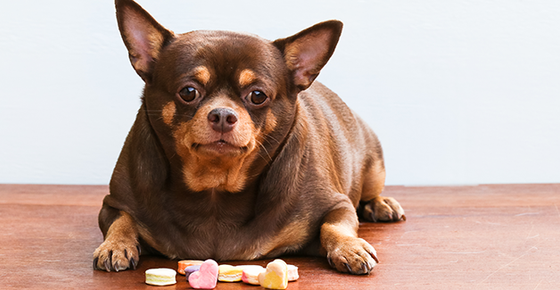
Most people have heard of diabetes and associate it with needing to administer insulin. But actually there are two different kinds of diabetes: diabetes mellitus and diabetes insipidus. Their symptoms can be similar, but their causes are totally different and thus their treatments are completely different.
Diabetes mellitus is the more common of the two; it is caused by a lack of insulin in the affected dog. Insulin helps to move glucose into cells. If there is no insulin, glucose builds up in the blood, and cells do not get the energy they need. Diseases such as Cushing's and pancreatitis can lead to diabetes mellitus. The use of steroids and being overweight can also predispose dogs to this condition. Diabetic dogs are all Type 1 diabetics in that they all require insulin (the oral medications that people with Type 2 diabetes use do not work in dogs) for the rest of their lives. Dogs with diabetes mellitus also frequently develop cataracts and urinary tract infections.
Both types of diabetes cause extreme water consumption; this symptom is called polydipsia. This leads to increased urination, and commonly accidents in the house. Polydipsia can be caused by many diseases, so laboratory tests are needed to confirm that it is being caused by diabetes.
Diabetes insipidus is caused by a reduced amount of ADH (antidiuretic hormone), a hormone that regulates water metabolism. ADH helps to keep water in the body, thus when there is too little ADH, the body can't conserve water well, and too much is released into the urine. The dog has to drink a lot of water to keep hydrated.
The drug vasopressin is used to treat diabetes insipidus. This may be administered by tablets given orally, or by drops put into the eye. Treatment is needed for the rest of the dog's life.
For both types of diabetes, it is important that water never be restricted. If the dog is polydipsic, her body is telling her to drink. There can be further organ damage if your dog is not allowed to drink enough water.
If your dog develops polydipsia, your veterinarian will need to get a good, thorough history, perform a physical exam, and do blood and urine tests. Your veterinarian can then help you and your dog develop a treatment plan.
Source:
"Water Diabetes in Dogs." Pet Health & Nutrition Information & Questions. PetMD, n.d. Web. 28 Aug. 2014.
